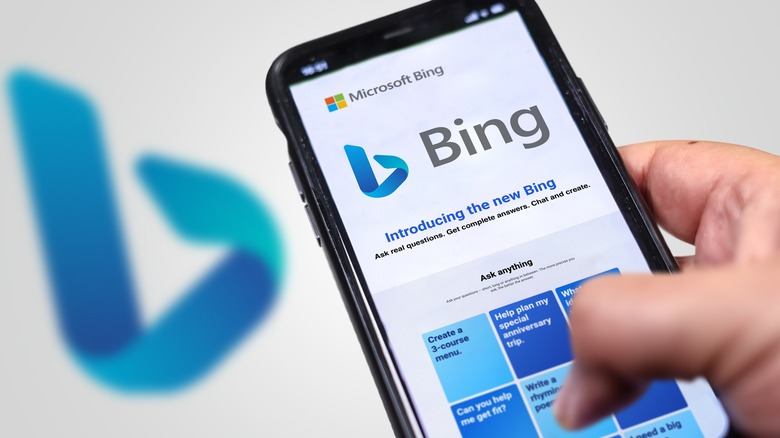Can An Employer See Your Bing Searches? How Microsoft's Search Engine History Works
Once email became a part of the average office worker's day-to-day professional work life, a bit of conventional wisdom soon emerged: Your employer can read your work emails, so don't put anything there that you wouldn't want them to see. If they own the domain name being used and are paying for the servers or third-party email service like Google One or Microsoft 365, then it's fair game, particularly if they have a good reason. Even setting aside basic ownership, this makes sense for practical reasons: Emails are subject to discovery in the event of a lawsuit, so the company needs a way to access all of them in the event of such litigation.
However, the topic gets a bit murkier when you get into the other products linked directly to your employer account under whatever enterprise solutions package your employer subscribes to. What if you stay logged into your work Google One account when you use, for example, YouTube or Google Search? How does Microsoft, as a chief competitor, handle the Bing search history on your company's 365 account? Is your employer entitled to see that the same way they can see your emails? Or is that handled differently since they're not official corporate communications the way that emails, Slack chats, and messages would be? Thankfully, Microsoft has pretty clearly outlined its policy for how it handles corporate search data, and while there's little to worry about, you still need to be fully informed to maintain best privacy practices.
Yes and no...
When it comes to the issue of whether or not your employer can see your Bing search history, there are a couple of different contexts to look at. The first — and more obvious — one is when you're using a work computer, whether at the office or a company-owned notebook at home. In that case, anything on the computer itself could potentially be viewed by your employer. So if you're not doing all of your searches in incognito mode, there's absolutely a possibility that your boss could find out about them later.
Less obvious is how it works when your employer has a corporate Microsoft 365 account that you need to be logged into. If you're not doing your searches in incognito mode, what can your employer see? To answer that, we need to defer to Microsoft's support page discussing search privacy and security. There, Microsoft explains that only you can see your individual search history, not your boss or an administrator. Whoever has been deemed "search administrator" at your company can, however, see the number of searches sorted by search type as well as "an aggregated list of top searches." So even if you're searching for something where the search string would make it obvious who's searching for it, the search administrator won't see it unless you searched for it enough times for it to end up on the top searches list. All told, your employer having a 365 account doesn't add much risk to having them see your searches.

